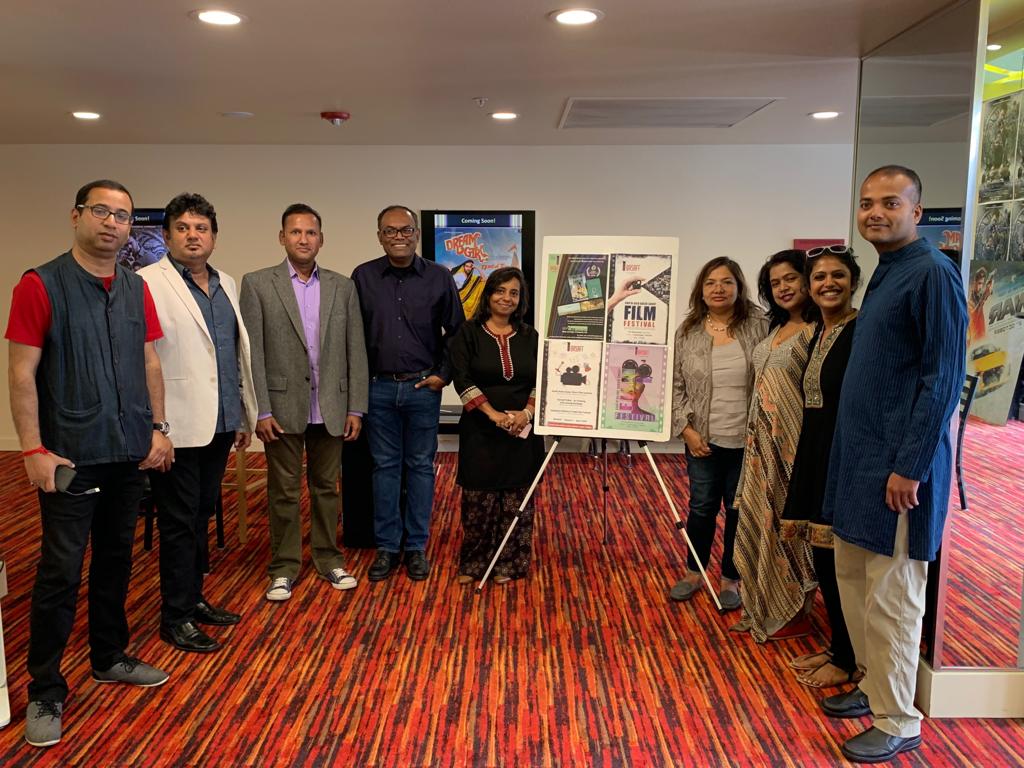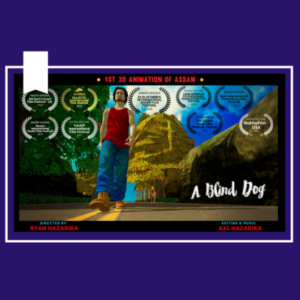

Lakshmi Iyer
India Post News Service
FREMONT, California: The Bay Area South Asian Film Festival (BASAFF), held the Cine Next Film Festival on December 7. The first session was at Cine Lounge in Fremont and the second session was held at the Mexican Heritage Plaza in San Jose.
The film festival is the brainchild and labor of love of an art-loving couple, Aparna and Aniruddha Dasgupta. Aparna is a trained Odishi dancer while her husband, Aniruddha is a software engineer.
The couple has been bringing independent and critically acclaimed Indian cinema to audiences in the Bay Area for the last couple of years. They organized a screening of “Newton”, India’s entry to the Oscars, and most recently, “Gumnaami Baba”, the Prosenjit-starrer Bengali film based on the real life Mukherjee Commission findings on the disappearance of Netaji Subhash Chandra Bose.
Only in its second year, BASAFF brought together diverse, thought-provoking films. What was really striking was the focus on children’s and youth films along with regular ones. There was a section called “Imaganimation” featuring animated films made by children.
They also held a children’s acting workshop in the second half at the Mexican Heritage Plaza.
This correspondent attended one of the screenings at Cine Lounge for the Assamese film, “Bulbul Can Sing”. Directed by Rima Das, it tells the story of a teenage girl, Bulbul and her friends in a village in Assam. It starts off innocently with three youngsters – two girls, Bulbul, her friend, Bonnie and an effeminate lad called Suman, all frolicking and playing with each other, participating in school cultural activities and discussing their crushes, just like typical teenagers. They also help out at home; Bulbul often lends a hand with her family’s pigs and the washing and cleaning, and her friends chip in, too.
Suman, the effeminate guy, is often bullied at school, called “Ladies” by the other boys and Bulbul stands up for him.

Bulbul (literally means “nightingale” in many Indian languages) is an excellent singer just like her father who is a folk singer. He usually has folk music sessions with his companions. However, Bulbul is not able to reach the full potential of her voice when performing in front of an audience.
The film takes a sinister turn when Bulbul and Bonnie go off with their boyfriends into the woods for some innocent kissing, leaving their buddy Suman to keep watch, but he wanders off. A gang of vigilantes gets hold of the young lovers and beat them up, threatening to record the latter on their mobile phones and broadcast it.
The media gets hold of the story, making matters worse for the teenagers, tarnishing their reputations in the village and school. The youngsters are reprimanded at home and the girls are expelled from their school (The fact that the boys were not, at least in the film, is a classic case of gender discrimination).
Fractured friendships, lost innocence and wasted potential are the result of a conservative society that does not acknowledge natural sexuality.
India Post chatted with one of the volunteers, Chitralekha (Minti) Deka, after the screening. Ms. Deka happens to be from Assam herself. A lover of offbeat films, she got introduced to the event as an audience member.
“I really like movies, different kind of movies, not the mainstream where there are specific subjects you go into and there are different sides of the society that are shown, where usually it is difficult topics that we don’t want to talk about in mainstream. And I had friends who were actually running BASAFF and I got introduced that way and since then, it’s been a very fun journey as a volunteer and part of the executive committee,” she said.
She added, “It’s a small team. We are trying to get these movies out to kids and to audiences in general in the Bay Area. Hopefully, we gain more traction as the days go by.”

Chitralekha mentioned BASAFF’s biggest festival coming up in April 2020 – the finale for the 2019-20 season. When asked about the selection of the films, she replied that it was the founders, Aparna and Aniruddha, who brought all these films and commended them for a great job.
As an Assamese person, she is very proud of the films from her native state. “I am very proud of what Rima has done. She was nominated from India for the Oscars last year,” she said. Rima Das was nominated last year for her first film, “Village Rockstars”.
“I am very proud of the work she’s doing, from a very humble background, starting off with the real India, real Assam, like you have seen in this movie, back in the villages… how people are, they don’t have much, but life is very innocent, it’s full of life. It’s very authentic, very close to nature.”
About the film, Chitralekha said, “The whole sensitivity of the movie, the teenage life, the parents and teachers and the expectations of society, I think it’s all woven into this movie very beautifully.”
Assam’s first 3D animation film, “A Blind Dog” was also screened at Cine Next.
The festival wrapped up with an evening of Bollywood performances.






